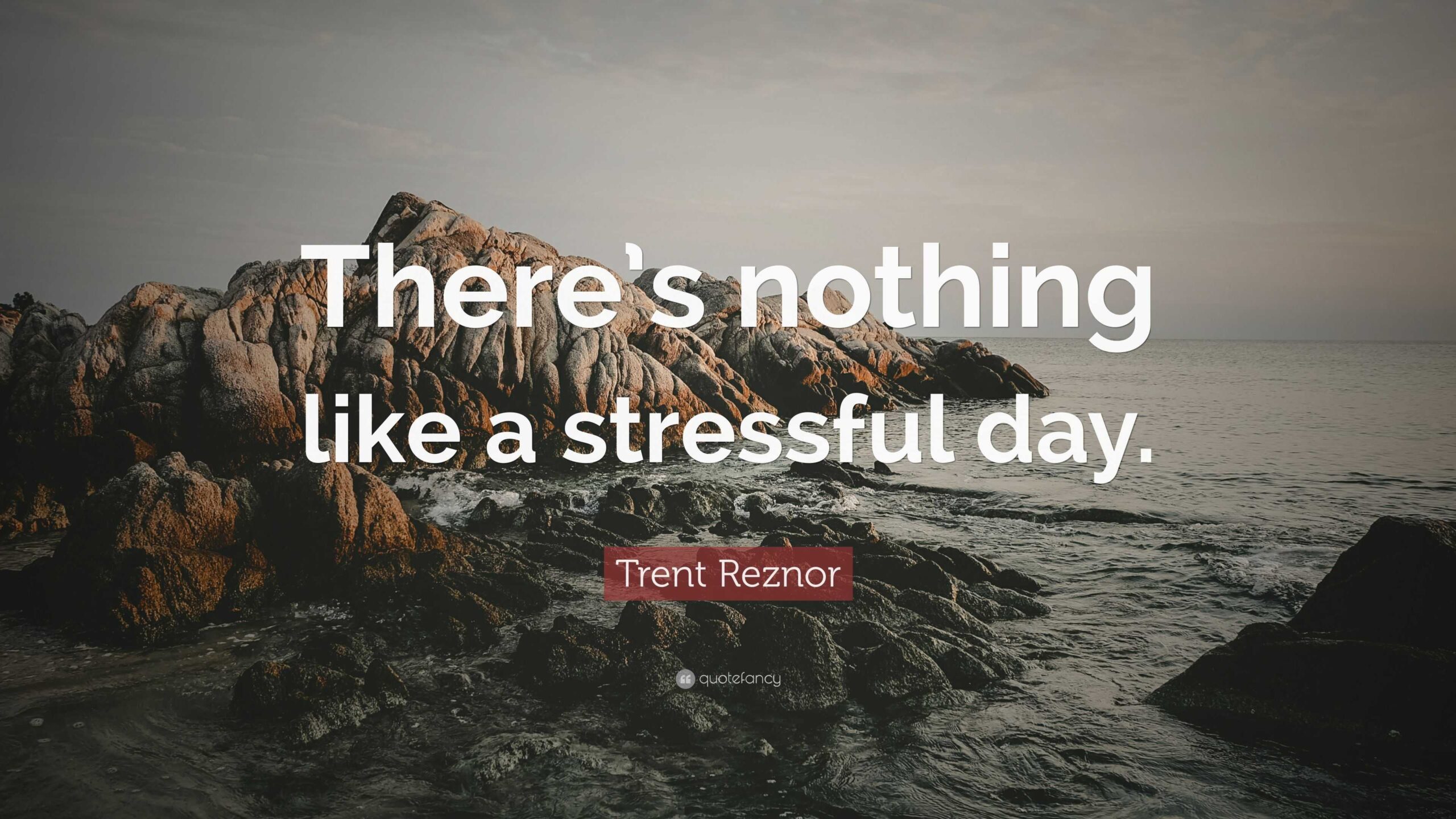After a busy day, it’s essential to take time to unwind and relax to help alleviate stress and recharge for the next day. Here are some effective ways to unwind:
- Deep Breathing Exercises: Practice deep breathing exercises to help calm your mind and relax your body. Find a quiet space, sit or lie down comfortably, and take slow, deep breaths in through your nose and out through your mouth. Focus on the sensation of your breath as it enters and leaves your body, allowing any tension or stress to melt away with each exhale.
- Mindfulness Meditation: Engage in mindfulness meditation to bring your attention to the present moment and cultivate a sense of inner peace. Sit quietly and observe your thoughts, emotions, and bodily sensations without judgment. Allow yourself to let go of worries about the past or future and simply be present in the here and now.
- Take a Warm Bath or Shower: Treat yourself to a warm bath or shower to help soothe tired muscles and relax your body. Add some calming essential oils or bath salts to enhance the experience and create a spa-like atmosphere. Allow yourself to fully immerse in the sensations of warmth and relaxation.
- Practice Gentle Stretching or Yoga: Engage in gentle stretching or yoga to release tension from your muscles and promote relaxation. Focus on slow, mindful movements that help you connect with your body and relieve any stiffness or tightness accumulated throughout the day. Pay attention to your breath as you move through each stretch or yoga pose.
- Read a Book or Listen to Music: Escape into a good book or listen to calming music to help distract your mind from the stresses of the day and unwind. Choose reading material or music that you find enjoyable and uplifting, whether it’s a novel, magazine, or your favorite soothing playlist.
- Enjoy Nature: Spend some time outdoors in nature to help clear your mind and rejuvenate your spirit. Take a leisurely walk in the park, sit by a tranquil body of water, or simply admire the beauty of your surroundings. Connecting with nature can help you feel grounded and refreshed.
- Practice Gratitude: Take a few moments to reflect on the positive aspects of your day and express gratitude for the blessings in your life. Write down three things you’re grateful for or simply take a mental note of them. Cultivating an attitude of gratitude can help shift your focus away from stress and towards appreciation.
- Limit Screen Time: Reduce your exposure to screens, such as computers, smartphones, and televisions, especially close to bedtime. Instead, engage in screen-free activities that promote relaxation and restful sleep, such as reading, journaling, or listening to calming music.
- Connect with Loved Ones: Spend quality time with loved ones, whether it’s chatting with family members, catching up with friends, or enjoying a quiet moment with your partner. Social connections can help boost your mood and provide a sense of comfort and support after a busy day.
- Get Adequate Sleep: Prioritize getting enough sleep each night to help your body and mind recover from the day’s activities. Create a calming bedtime routine and establish a consistent sleep schedule to promote restful sleep and wake up feeling refreshed the next morning.
Experiment with different relaxation techniques and activities to find what works best for you and helps you unwind effectively after a busy day. Remember to prioritize self-care and make time for relaxation to support your overall well-being and resilience.
Meditation can be a powerful tool for increasing self-confidence by cultivating a sense of inner peace, self-awareness, and self-acceptance. Here’s how you can use meditation to boost your self-confidence:
- Practice Mindfulness Meditation: Mindfulness meditation involves bringing your full attention to the present moment without judgment. By practicing mindfulness, you can become more aware of your thoughts, feelings, and bodily sensations, allowing you to observe and accept them without getting caught up in self-doubt or criticism.
- Cultivate Self-Compassion: Self-compassion involves treating yourself with kindness, understanding, and acceptance, especially during times of difficulty or failure. Use meditation to cultivate feelings of self-compassion by directing loving-kindness and compassion towards yourself. You can use phrases such as “May I be happy,” “May I be healthy,” and “May I be at peace” during your meditation practice.
- Visualize Success: Visualization is a powerful technique for building confidence. During meditation, visualize yourself succeeding in various areas of your life, whether it’s at work, in relationships, or pursuing your goals and dreams. Imagine yourself feeling confident, capable, and worthy of success.
- Focus on Positive Affirmations: Incorporate positive affirmations into your meditation practice to challenge negative self-talk and reinforce positive beliefs about yourself. Repeat affirmations such as “I am confident,” “I believe in myself,” and “I deserve success” during your meditation sessions.
- Release Limiting Beliefs: Use meditation as a tool for exploring and releasing limiting beliefs that may be holding you back from feeling confident. Take time to identify any negative beliefs or self-doubts that arise during meditation and challenge them with positive affirmations or compassionate self-talk.
- Develop a Sense of Inner Strength: Connect with your inner strength and resilience during meditation by tapping into feelings of courage, determination, and perseverance. Visualize yourself overcoming challenges and setbacks with grace and confidence.
- Set Intentions: Set intentions for your meditation practice that align with building self-confidence. Whether it’s increasing self-esteem, developing assertiveness, or stepping outside your comfort zone, focus your meditation sessions on cultivating qualities that support greater confidence in yourself.
- Be Patient and Consistent: Building self-confidence through meditation is a gradual process that requires patience and consistency. Commit to a regular meditation practice and trust that over time, you will begin to notice positive changes in your confidence levels.
By incorporating these meditation techniques into your daily routine, you can cultivate greater self-confidence and develop a more positive relationship with yourself. Remember that self-confidence is a journey, and each meditation session is an opportunity for growth and self-discovery.
Here’s a simple 10-minute stress-releasing meditation that you can try:
- Find a Quiet Space: Start by finding a quiet and comfortable space where you can sit or lie down without distractions.
- Sit Comfortably: Sit in a comfortable position with your back straight but not rigid. You can also lie down if that feels better for you.
- Close Your Eyes: Close your eyes gently and take a few deep breaths, inhaling through your nose and exhaling through your mouth. Feel your body relaxing with each breath.
- Body Scan: Take a few moments to scan your body from head to toe, noticing any areas of tension or discomfort. With each exhale, imagine releasing tension from these areas, allowing them to soften and relax.
- Focus on Your Breath: Bring your attention to your breath as it flows in and out of your body. Notice the sensation of the breath as it enters through your nostrils, fills your lungs, and then leaves your body.
- Counting Breaths: Begin counting your breaths silently in your mind. Inhale slowly to the count of four, hold your breath for a count of four, and then exhale slowly to the count of four. Repeat this pattern for a few breaths.
- Mantra or Affirmation: Choose a calming mantra or affirmation to repeat silently to yourself with each breath. It could be something simple like “I am calm” or “I am at peace.”
- Letting Go of Thoughts: As thoughts arise in your mind, acknowledge them without judgment and then gently return your focus to your breath and your chosen mantra or affirmation.
- Body Awareness: Bring your awareness back to your body and notice how it feels after this brief meditation. Notice any changes in your level of relaxation or any areas of tension that have eased.
- Gratitude: Take a moment to express gratitude for yourself for taking this time to care for your well-being. When you’re ready, gently open your eyes and return to the present moment.
This short meditation can help you release stress and tension, leaving you feeling more centered and calm. Feel free to modify it to suit your preferences and explore different techniques to find what works best for you.



